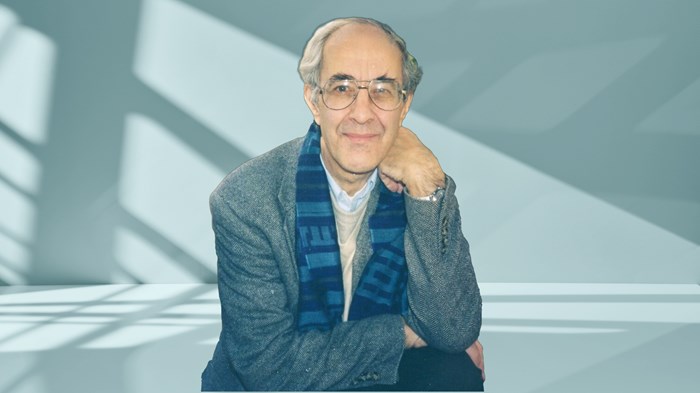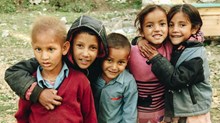What Henri Nouwen Might Say to Today’s Students on Discernment

Henri Nouwen, who left his post as an Ivy League professor, didn’t move straight into a life of living with and serving people with disabilities. First, he spent nearly a year working in Bolivia and Peru.
His honesty about this season of his life provides a great example for anyone making a decision about the next right step:
“My living with the poor hardly makes me poor. …I like to eat good meals and have time to read books and take walks. I like showers with hot water. I like to sleep in from time to time, take a regular day off, and travel. Some feel that to be in ministry with the poor, you should be no different from them; others say that such solidarity is not realistic or even authentic.
“My ministry experience in Latin America showed me that I was physically, mentally and spiritually unable to survive without the opportunity to break away from it all once in a while… A certain realism is necessary to fulfill a call to work and live among the poor. You have to accept your own history and limitations.”
Because of this long “test trip,” Nouwen learned this crucial aspect of himself—the boundaries he needed—that would have prevented him from serving where he thought he might be called. Although he felt called away from the prestige of the Ivy League—a God given desire—Peru was not the place for him, and this took time and effort to discern.
Without that trip, Nouwen might have burned out in his first year of service. It’s a topic we discuss often on the Better Samaritan, because of astronomically high rates of burnout in helping professions—particularly since COVID-19.
Many others aren’t bothered by the living conditions Nouwen describes in Lima—and that’s ok. Discernment often involves embodying potential options—as Nouwen did—but also takes into account real, human things like a preference for hot showers.
At the height of college selection season, a high school teacher advised me that it was ok to rule out a college because you couldn’t stand the light bulbs in the classrooms. (Hey, you’ll be spend a lot of time learning in there, she said.) Later, in college, while trying to discern whether to apply for a semester in Uganda or in Washington, D.C. (two very different places!), a mentor counseled me against Uganda, pointing out that I already knew where my heart felt pulled. Though the work in D.C. was important and I could handle the showers in either place, she knew that in D.C. I would learn the advocacy tactics necessary to work on the issues I cared most about.
Bottom line: there are all kinds of reasons to rule out a calling.
While we wait for direction, however, “[w]alking with Jesus keeps us in the present. And this kind of waiting is the opposite of worrying about the future,” Nouwen says, “Expectant waiting is trusting that this long process will bear fruit.”
In academia, where he got his professional ‘start,’ this cycle plays out constantly for Christians. We feel called to an area of study; we explore the option by interning, planning a visit, or testing the waters in some way; we wait for acceptance… or direction away from that path. If we get that green light, here’s a whole new season of (highly active) waiting: we study while waiting for a test, keep researching while waiting to see whether the journal will accept the research, and keep honing skills while waiting for a placement. Receiving the news is the easy part. It’s everything in between that is hard.
Perhaps the expectant waiting is especially hard for those of you who want to respond to urgent global crises, like those at the Humanitarian Disaster Institute. There’s a sense of urgency for you, knowing that natural disasters have more than quadrupled over the last 30 years, and are getting worse all the time.
You don’t just want to help—you are first responders. And you are investing years of your life—sometimes even pursuing a postgraduate degree—to understand the best ways to help. During the pandemic, some of you who normally would have been first in line for a deployment sat at home, practically chewing your arm off while waiting for their chance to help.
Whatever form of waiting–job searching, deployment waiting, graduate studying–you might be in, Nouwen wisely reminds us to keep reflecting on Christ’s call on our lives:
“You have to remind yourself that Jesus said, ‘Blessed are the poor,’ not blessed are those who try to help the poor. At the same time, you have to deal with the gospel call to downward mobility, accepting that the way of Christ is a self-emptying way. What that means in your own concrete situation will probably remain a lifelong question.”
Nouwen wrote about the need for centers of education where people receive both intellectual training and deep spiritual formation involving the body, mind and heart. “To the degree that such formation is being sought after and realized,” he wrote before he died in 1996, “there is hope for the church of the twenty-first century”.
Whatever your next step this season, I pray it will lead you into deeper awareness of your own limitations, your God-granted passions, and ultimately deeper into the heart of God.
Laura Finch is the producer and editor of the Better Samaritan blog and podcast, which is created at the Humanitarian Disaster Institute. She continues to discern her own lifelong calling, which has so far led through Hurricane Katrina cleanup, two state legislatures, Capitol hill, nonprofit journalism and ghostwriting.
The Better Samaritan is a part of CT's
Blog Forum. Support the work of CT.
Subscribe and get one year free.
The views of the blogger do not necessarily reflect those of Christianity Today.






















